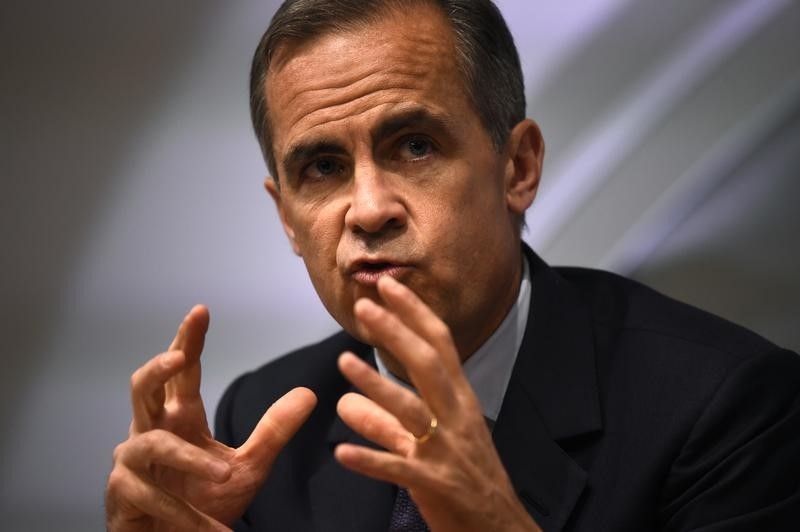(Bloomberg) -- The Bank of England is holding off from forcing most European banks operating in the U.K. to become subsidiaries, but says it’s ready to get tougher if progress toward a Brexit deal breaks down.
Governor Mark Carney told lawmakers in London Wednesday that making lenders and insurers go through the process of setting up subsidiaries, only to then reverse course later, would be costly and disruptive. He spoke after the central bank proposed new measures for handling the branches of European banks in Britain after the split with the European Union.
“Now is not the time that one has to say glass half empty, we’re never going to get a deal,” Carney said. “We’re in a position right now, as a consequence of the system under which we’re operating in Europe, where we do have a line of sight to the risks, where we do have direct conversations with the supervisors, where we can catalyze actions if necessary to manage the risks.”
While Michel Barnier, the chief EU negotiator, has ruled out a special deal for financial services after Brexit, Carney said there’s no good reason it couldn’t happen.
“The U.K. financial system is, like it or not, effectively the banker for Europe in the most complicated bits of finance,” Carney said. “We are now in a position where you can have free trade in financial services. I don’t accept the argument that just because it has not been done in the past, it can’t be done in the future.”
More Optimism
Carney’s comments are the second time in a week he’s expressed optimism about the Brexit talks. In the past, he’s drawn criticism for seeming to negative on the U.K.’s prospects. Policy makers last week said the breakthrough in Brexit negotiations this month could prove to be positive for the economy by boosting household and corporate confidence.
In a statement Wednesday, the central bank said that there are 77 branches of European banks in the U.K., along with 80 branches of insurers. These firms, which currently have the right to do business in Britain using a single-market “passport,” can start applying in January for U.K. authorization after Brexit.
The BOE’s proposal is based on the premise that a “high degree of supervisory cooperation” will continue to exist between the U.K. and the EU after Brexit. This assumption may be revisited as the divorce talks proceed, Carney said.
Carney added that if it looks like no arrangement will be reached, the BOE could demand that European financial institutions set up subsidiaries, which would be subject to direct supervision by the BOE rather than the EU. Speaking on the day the European Commission said the U.K.’s Brexit transition will come to an end on Dec. 31, 2020, the BOE governor also reiterated his view that an early agreement is required.
The BOE’s remarks send “a clear signal, both in the EU and beyond, that the U.K. is taking a thoughtful and measured approach to the practical challenges around navigating Brexit,” said Stephen Jones, Chief Executive of UK Finance. “This attempts to provide greater clarity.”
(Updates with more Carney comments in fourth paragraph.)
